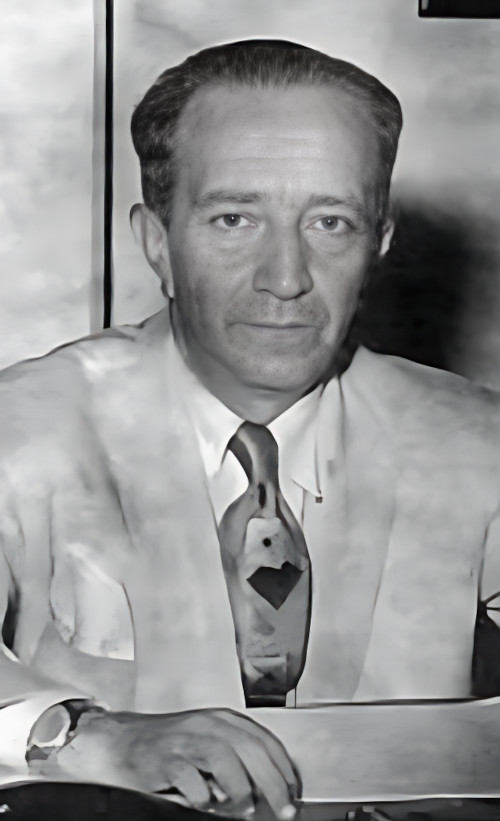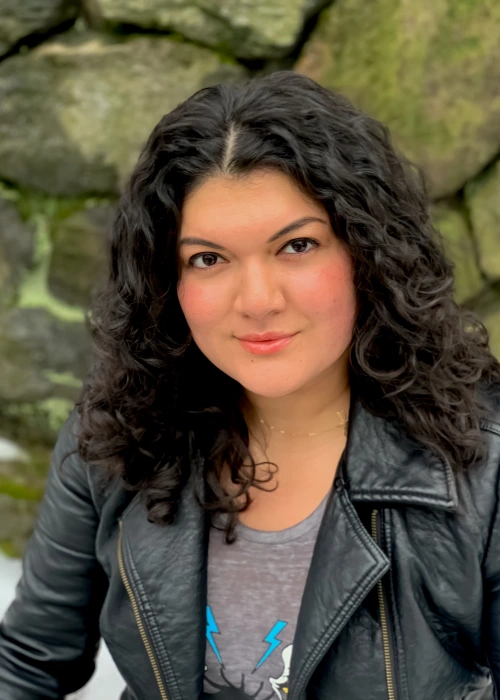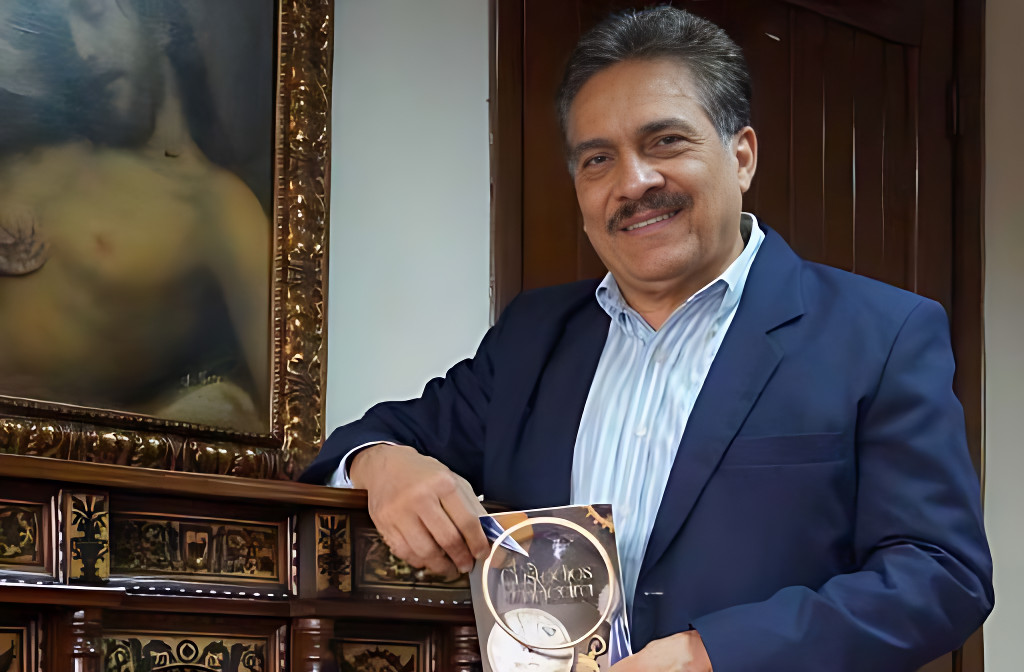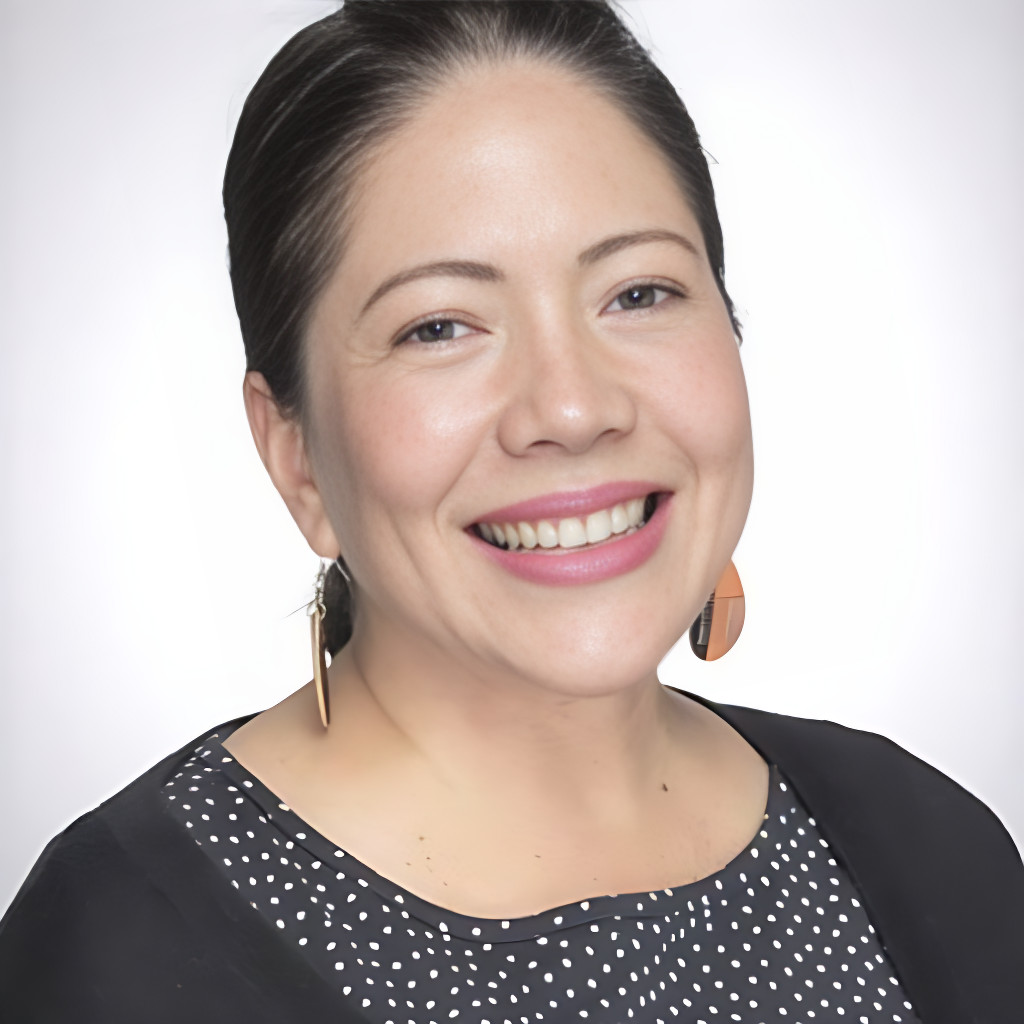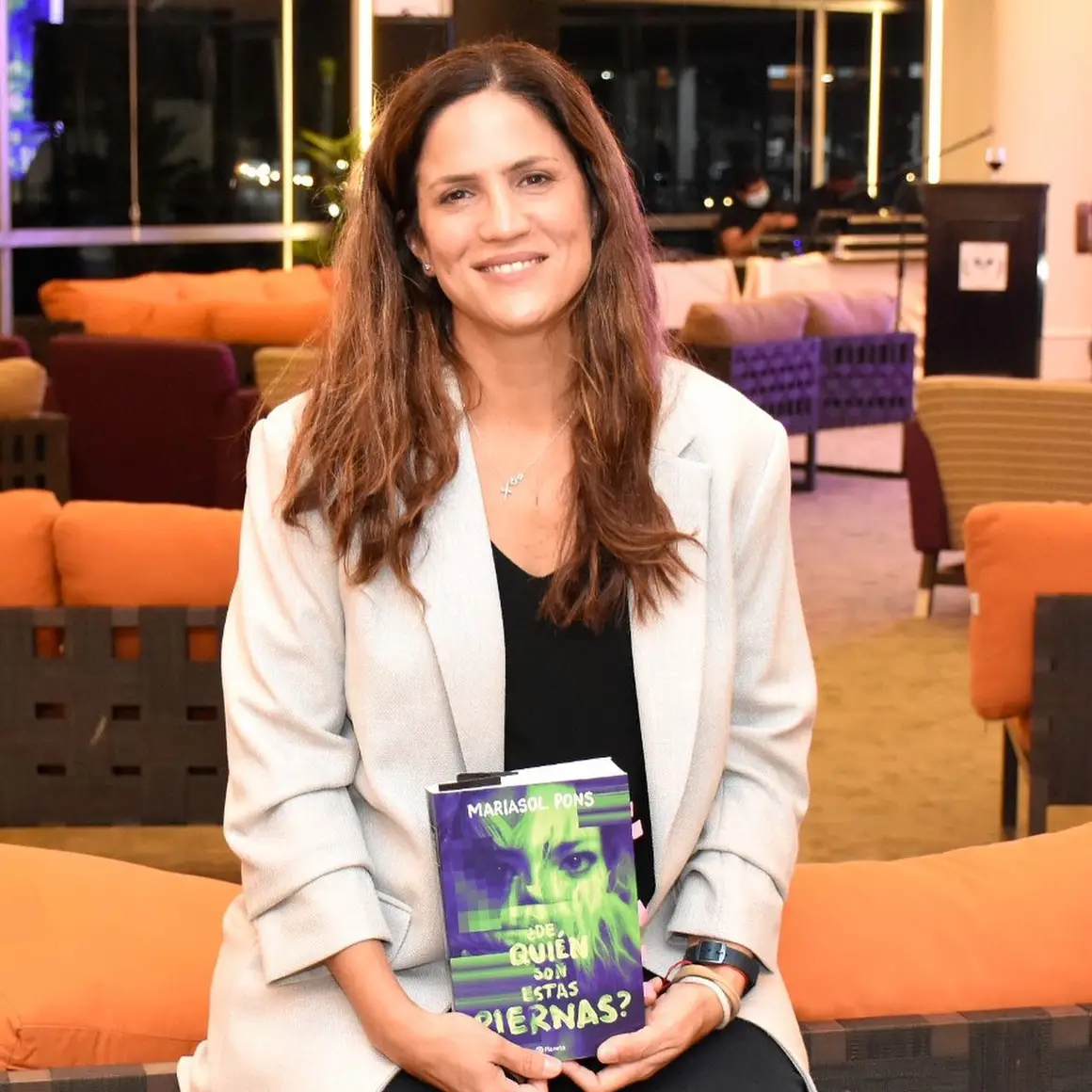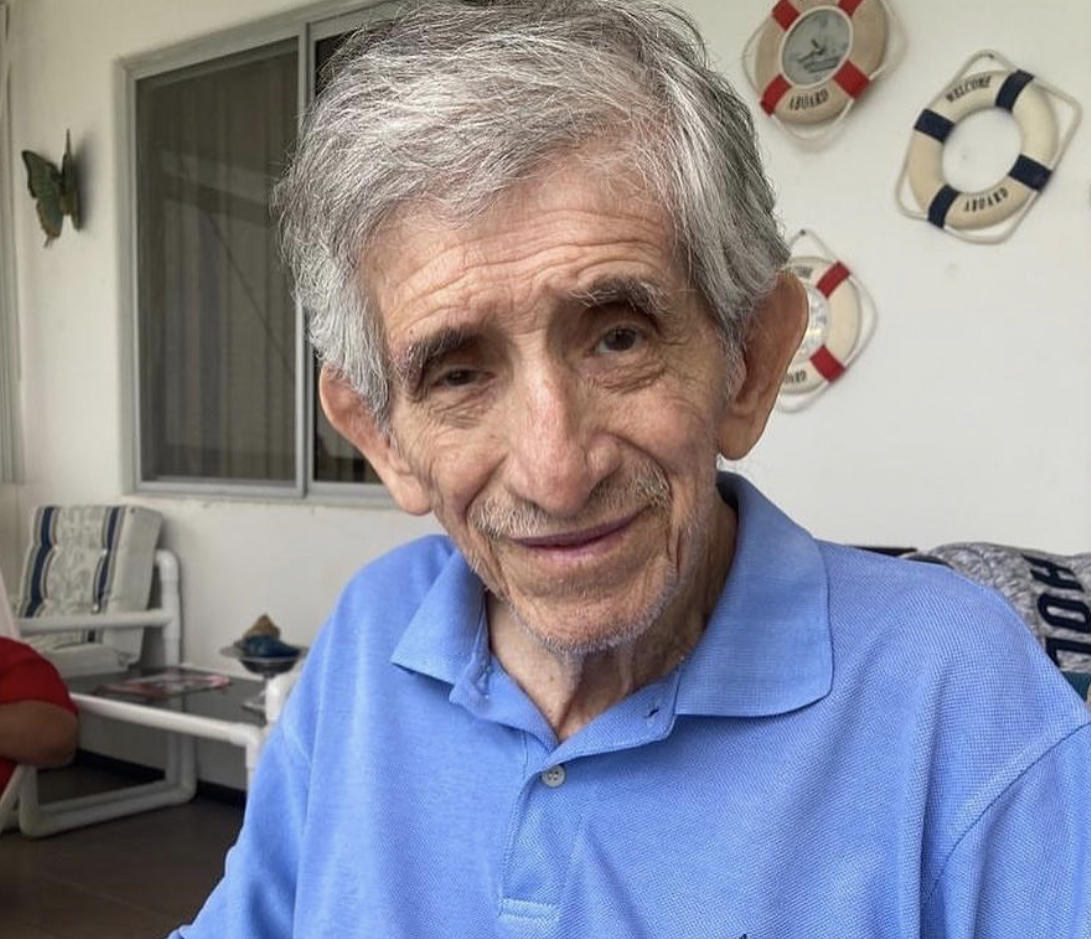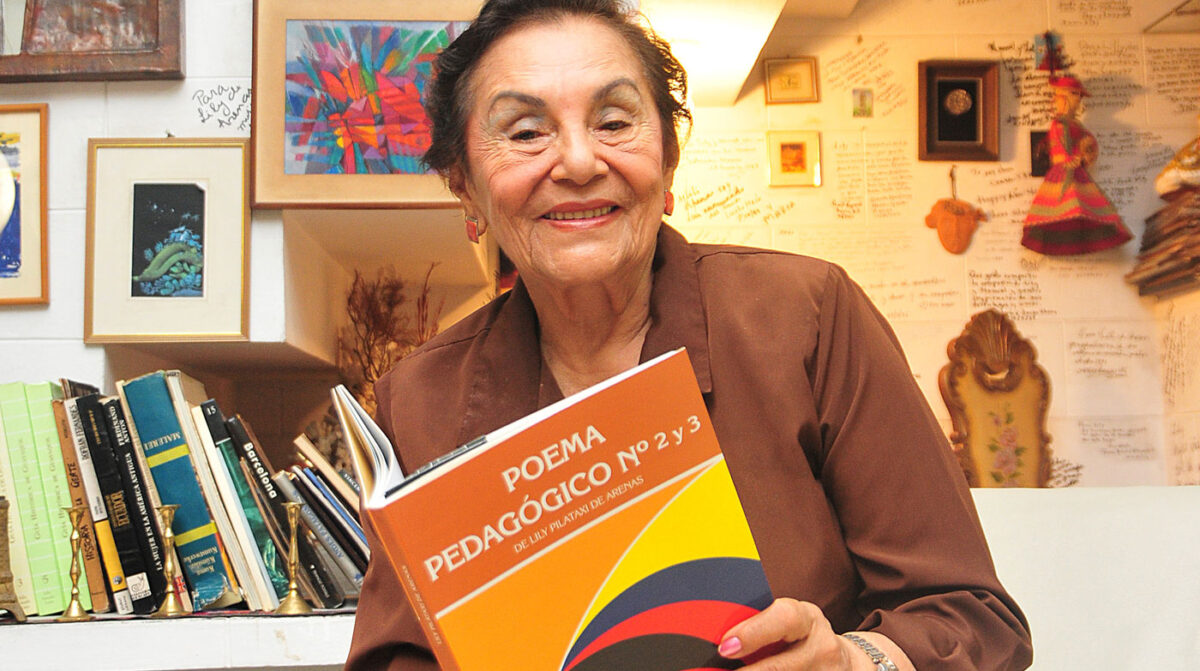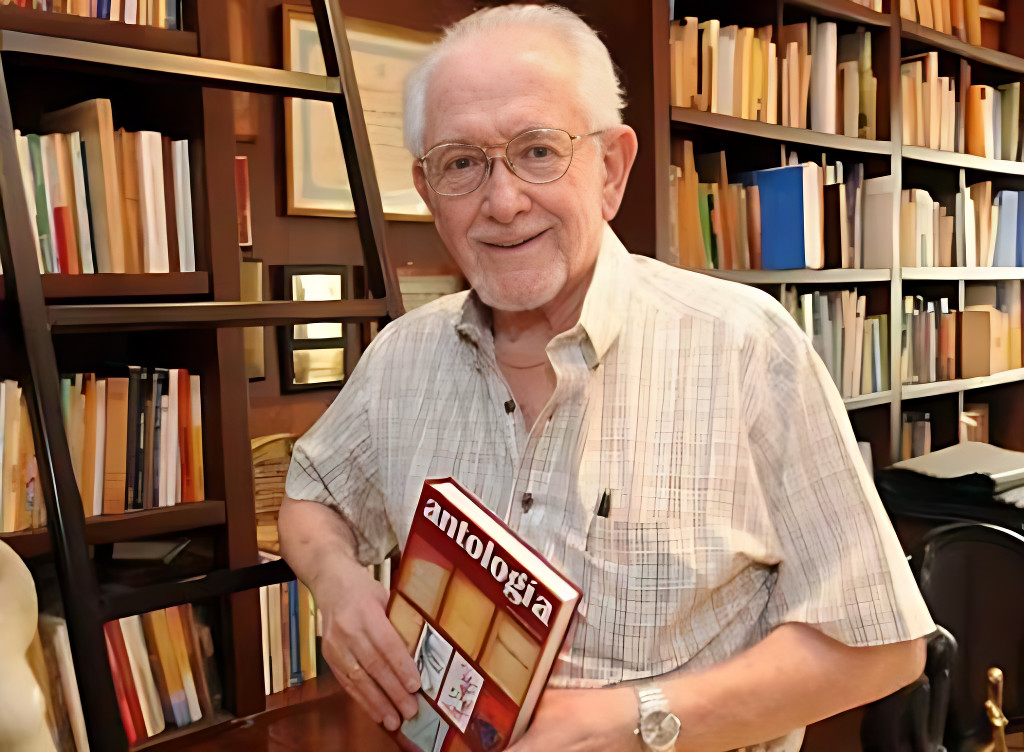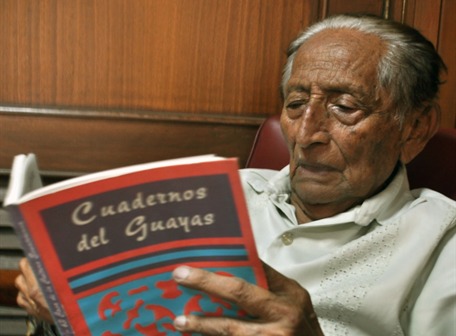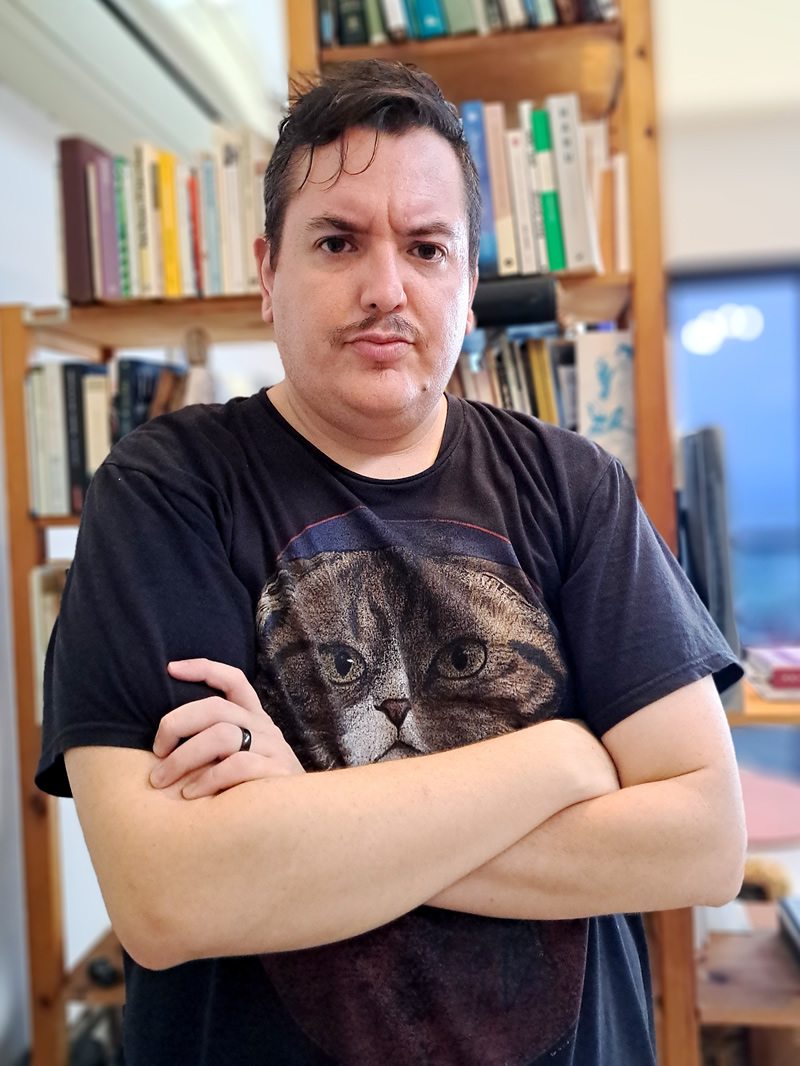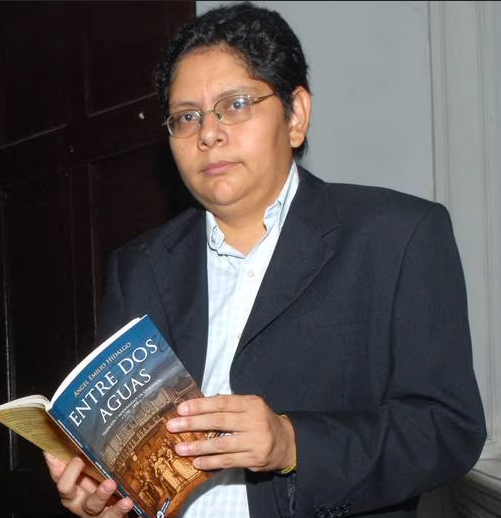Humberto Salvador Guerra (Guayaquil, December 25, 1909 – Ibidem, January 17, 1982) was an Ecuadorian writer, editor, jurist, psychoanalyst, and literature professor. His early literary works associated him with the avant-garde movement in Ecuador, publishing notable works such as the novel “En la ciudad he perdido una novela…” (1930). However, he shifted towards social realism in his later works, with novels such as “Camarada” (1933), “Trabajadores” (1935) and “Noviembre” (1939). Known for his exploration of human psychology and his bold examination of societal issues, Salvador’s works displayed a remarkable depth of insight and a willingness to challenge traditional norms. His remarkable literary legacy includes 13 novels, 4 short story collections, 2 plays, and a groundbreaking doctoral thesis titled “Esquema sexual” that has gone though many editions.
Continue reading “Humberto Salvador”Category: Writers from Guayaquil
Zoraida Córdova
Zoraida Córdova (Guayaquil, 1987) is an Ecuadorian-American author of fantasy novels for children and young adults, as well as romance novels. Born in Guayaquil, Ecuador, she immigrated to the United States at a young age, embracing English as her second language. Growing up in Hollis, Queens, Córdova’s passion for writing was ignited by the works of authors like Amelia Atwater Rhodes. She dedicated herself to refining her skills, attending writing camps and conferences throughout her college years. Her notable achievements include the Brooklyn Brujas series, an exploration of identity, family, and magic. The series, which won her an International Latino Book Award for its first installment, stands as a testament to her storytelling prowess. In addition to her acclaimed series, Córdova has made significant contributions to the Star Wars canon universe, including her novel “Star Wars: Convergence (The High Republic).” Furthermore, she displays her versatility by writing romance novels under the pen name Zoey Castile, notably the popular Happy Endings series.
Continue reading “Zoraida Córdova”Fernando Naranjo Espinoza
Fernando Naranjo Espinoza (Guayaquil, 1954) is an Ecuadorian writer, architect, watercolorist, and illustrator. He has made significant contributions to the realm of science fiction, a genre relatively unexplored in Ecuadorian literature. With his boundless imagination and captivating storytelling abilities, Naranjo Espinoza takes readers on extraordinary journeys through time, space, and alternate realities. In recognition of his talent, he received an Honorable Mention in the prestigious National Contest “José de la Cuadra” in 1979. Among his notable works is “La era del asombro” (1994), which garnered acclaim and recognition in the National Contest “Ismael Pérez Pazmiño.” Another noteworthy publication is “Cuídate de los coriolis de agosto” (2006). While primarily known for his science fiction stories, Naranjo Espinoza also ventured into the realm of the social novel with his book “Guasmo sur” (2013), which earned him the Second National Novel Prize in 2010. His most recent work, “Los custodios de la piedra” (2018), is a captivating collection of science fiction stories that delve into themes of time travel, memory, and the manipulation of reality. Since August 2017, Fernando Naranjo Espinoza has been serving as the Director of the Guayas Branch of the House of Ecuadorian Culture.
Continue reading “Fernando Naranjo Espinoza”Melanie Márquez Adams
Melanie Márquez Adams (Guayaquil, May 5, 1976) is an Ecuadorian American writer, editor, and translator. Among her published books are “Mariposas negras” (2017), a collection of stories, and “Querencia” (2020), an exploration of identity and finding one’s sense of belonging in a foreign land. As an editor, Márquez Adams has curated anthologies such as “Del sur al norte: Narrativa y poesía de autores andinos” (2016), which showcases the narratives and poetry of Andean authors, and “Ellas cuentan: Antología de Crime Fiction por latinoamericanas en EEUU” (2019), highlighting the crime fiction works by Latin American women in the United States. Márquez Adams has received accolades such as the Latino Book Award for her exceptional work as an editor. Her latest work, “Imaginar países” (2021), was a finalist for the 2022 Premio Paz de Poesía (Paz Poetry Prize).
Continue reading “Melanie Márquez Adams”Victoria Puig de Lange
Victoria Puig de Lange (Guayaquil, December 3, 1916 – Miami, May 14, 2008) was an Ecuadorian author, composer, diplomat, and influential figure in journalism and the fashion world. Throughout her long career, she held notable positions such as Editor-in-Chief of Harper’s Bazaar (Spanish edition) and worked as a Latin American syndicated columnist. Puig’s autobiography, “Sol Con Agua,” blended elements of magic realism with her personal memoirs of a life surrounded by presidents, movie stars, and international personalities. She played a significant role in promoting Latin American designers, co-founding the first Latin American fashion week and being actively involved in major fashion events in London, Milan, and Paris. As a diplomat, Puig represented Ecuador as Consul General in Miami, while also showcasing her musical talents as a songwriter and performer. Recognized for her contributions, Puig received numerous accolades and awards, including Honorary Citizen of Florida and the Woman of the Year award in Ecuador. Victoria Puig de Lange left a lasting legacy in the realms of journalism, fashion, and cultural diplomacy.
Continue reading “Victoria Puig de Lange”Elisa Ayala González
Elisa Ayala González (Guayaquil, 1879) is considered the pioneer of short stories in the early decades of the 20th century in Ecuador. She grew up on a hacienda in the province of Los Ríos, where her father, Arcadio Ayala, a doctor, fostered her love for literature through his extensive library. Her writings were published in various Spanish, Uruguayan, Chilean, Argentinean, and Cuban magazines and newspapers. Her first short story, “La maldición,” was published in one of the international magazines to which her father subscribed. Ayala González’s works can be found in various anthologies, such as the “Antología de narradoras ecuatorianas,” by Miguel Donoso Pareja, and the “Antología básica del cuento ecuatoriano,” by Eugenia Viteri.
Mariasol Pons
Mariasol Pons Cruz (Guayaquil, 1979) is an Ecuadorian novelist known for her captivating storytelling. Pons has authored several notable works, including “La Chica” (2013), “El libro de Olga” (2017), and “¿De quién son estas piernas?” (2021). Her debut novel, “La Chica,” delves into the world of drug trafficking, while “El libro de Olga” draws inspiration from Bram Stoker’s Dracula and explores complex characters in historical contexts. In “¿De quién son estas piernas?” Pons ventures into the realm of the future, challenging notions of identity and autonomy. Pons’ distinctive writing style and ability to engage readers have garnered recognition and acclaim in the literary community. Currently, she resides in Guayaquil and works as an editorialist for the newspapers Diario Expreso, Diario de Manabí, and La República.
Continue reading “Mariasol Pons”Tamara Mejía Molina
Tamara Mejía Molina (Guayaquil, 1987) is an Ecuadorian poet and art critic. She is the author of several books, including “Esto soy yo, Marakaramazov,” “Historia esculpida de Manuel Velastegui,” and “Últimos días de una herida,” and has written more than 20 art criticism articles for cultural newspapers. Molina’s work as a poet has brought her international recognition, and she has been invited to participate in various poetry festivals in Ecuador and abroad. In 2022, her poetry book “Últimos días de una herida,” was awarded the Ileana Espinel Cedeño Poetry Festival Award.
Continue reading “Tamara Mejía Molina”Luis Delgadillo
Luis Delgadillo Avilés (Guayaquil, 1942 – September 13, 2022) was an Ecuadorian poet and journalist. He was part of a group of poets dubbed, “Generación Huracanada” [Hurricane Generation]. In 1971, he won the third national poetry prize. His poetry books include: “El rayo que ilumina” (1971), “Poemas de la marcha” (1977), and “Carta para un hijo y otros poemas” (1997). His non-fiction books include: “Leonardo Escobar Bravo, El ministro de los campesinos” (2006) and “La pepa de oro y el montubio” (2007), which focused on themes of the peasant class. He was a member of the literary section of the House of Ecuadorian Culture in Guayas.
Continue reading “Luis Delgadillo”Lily Pilataxi de Arenas
Lily Pilataxi de Arenas (Guayaquil, 1930) is an Ecuadorian author of children’s literature, poet, writer, journalist, diplomat and educator. As a feminist and advocate of women’s rights she authored “La Mujer y sus Derechos” [Women and their Rights] (1990). She has taught in Ecuador and Germany, and most recently served as rector of the Educational Unit Steiner (Unidad Educativa Steiner) in Guayaquil. Her teaching experiences in Germany (from 1963 to 1978) are chronicled in “Poema pedagógico No 2 y 3” [Pedagogical Poem Nos. 2 and 3]. Perhaps her most popular children’s story is “Doña cucaracha y la bolita de nieve” [Don︣a Cucaracha and the Snowball] (2010) which was translated into English, Geman and French. She has received numerous honors both inside and outside of Ecuador. She was awarded and designated an honorary member of The International Society of Poets, Writers, and Artists (SIPEA). As a journalist, she wrote an opinion column for El Universo newspaper for 30 years, and was also an opinion columnist for El Telégrafo. She has given lectures in the United States, Europe and Africa.
Continue reading “Lily Pilataxi de Arenas”Francisco Pérez Febres-Cordero
Francisco Pérez Febres-Cordero (Guayaquil, July 18, 1934 – Ibidem, August 31, 2010) was an Ecuadorian poet and journalist whose distinguished career at El Universo newspaper lasted four decades (1958-1998). Among his many accomplishments at El Universo was the creation of the Ismael Pérez Pazmiño Poetry Contest in 1959, which is regarded as one of the most prestigious poetry awards in Ecuador. He authored several poetry books, beginning with “Polvo de estrellas” [Star Dust] in 1951. His “Obras completas” [Complete Works] was published posthumously in 2020. From 1992 to 1998 he was Vice-director and Chairman of the Board of El Universo. In 1998, the year he retired from El Universo, he and one of his sons launched a bookstore named El Librero inside the Ríocentro Ceibos Mall, which, in 2008, they sold to the Librimundi group. In 2012, a bust of him was erected on “Avenida del Periodista” (Avenue of the Journalist) in Guayaquil.
Continue reading “Francisco Pérez Febres-Cordero”Cristóbal Garcés Larrea
Cristóbal Garcés Larrea (Guayaquil, April 20, 1924 – May 2017) was an Ecuadorian poet, editor, and literary critic. He was the editor-in-chief of Cuadernos del Guayas, the official magazine of the Guayas chapter of the House of Ecuadorian Culture, which was created by Carlos Zevallos Menéndez and whose prior editors-in-chief were Adalberto Ortiz and Francisco Pérez Febres Cordero (albeit for short periods). In 1944, he and Galo René Pérez, Jorge Enrique Adoum and Enrique Noboa Elizaga published the literary magazine Madrugada. In 1970, he released a book series that included stories by then-contemporary writers from certain Latin American countries or regions (which he compiled and edited), including: “Narradores Centroamericanos Contemporáneos,” “Narradores Cubanos Contemporáneos,” “Narradores Colombianos Contemporáneos,” and “Narradores Brasileños Contemporáneos.” He published several of his poems in magazines in Ecuador but a collection of his poems has never been published as a book. He worked for many years as a professor.
Continue reading “Cristóbal Garcés Larrea”Jorge Luis Pérez Armijos
Jorge Luis Pérez Armijos (Guayaquil, 1987) is an Ecuadorian, poet, essayist, editor, and translator. He has authored 4 poetry books, including “Rimas sin sarcasmos” (2012), “Primavera en invierno” (2014), “Lira bien temperada” (2016), and “Clases de catalán” (2018). His best known work is perhaps “Aquel que pudo ver lo Profundo” (2019), a poetic translation of the Epic of Gilgamesh. In 2020 he published, “La risa: Ensayo sobre el significado de lo cómico,” a French-to-Spanish annotated translation of “Le Rire. Essai sur la signification du comique” [Laughter: An Essay on the Meaning of the Comic], a collection of 3 essays by French philosopher Henri Bergson first published in 1900 in the French literary magazine Revue de Paris. He has also published a translation of Shakespeare’s Sonnets, entitled “Variaciones Shakespeare” (2017), and Shakespeare’s narrative poem, “Venus y Adonis” (2021).
Continue reading “Jorge Luis Pérez Armijos”Ángel Emilio Hidalgo
Ángel Emilio Hidalgo Ortiz (Guayaquil, 1973) is an Ecuadorian historian, a poet, a professor at Guayaquil’s University of the Arts (UArtes) since 2014, and the director of the Guayaquil Municipal Library since 2021. His poetry collections include “Beberás de estas aguas” (1997, First Prize in the Ismael Pérez Pazmiño National Poetry Contest), “El trazado del tiempo” (2003, honorable mention in the National Literature Contest of the Guayaquil Municipality), “Fulgor de la derrota” (2010), and “Acapulco so close” (2021). Hidalgo’s poems have been published in various Ecuadorian and Latin American anthologies. such as “Porque nuestro es el exilio” (2006), which features the poetry of three Ecuadorian authors, Ángel Emilio Hidalgo, Luis Carlos Mussó and Ernesto Carrión, as well as Fabián Darío Mosquera, a Colombian poet living in Guayaquil. In addition, he is the co-author of more than 20 books of historical and cultural essays and is a member of Ecuador’s National Academy of History.
Continue reading “Ángel Emilio Hidalgo”Othón Muñoz Alvear
Othón Muñoz Alvear (Guayaquil, Jan 14, 1945 – August 9,2014) was an Ecuadorian poet, columnist, writer, anthologist, theater actor, teacher, and politician. He’s considered the greatest of the “Hurricane Generation,” a group of poets in the 1970s who all contributed to a book of the same name. He authored poetry books and won several prizes and national literary contests. His poem, “Breves noticias de sus vidas breves,” won first prize at the Ismael Pérez Pazmiño National Poetry Contest held by the newspaper El Universo in 1978. He presided over the Guayaquil Municipal Cultural Center and the Association of Educational Journalists. He is perhaps best known for his poems “Mamacity” and “Y te vuelvo a fundar en la esquina de mi barrio,” which pay homage to his native city of Guayaquil.
Continue reading “Othón Muñoz Alvear”
